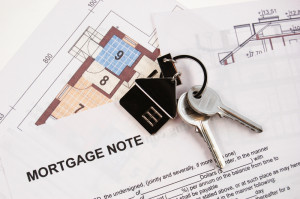What Does The End Of Fannie & Freddie Mean?
What does the end of Fannie Mae and Freddie Mac mean for home buyers, sellers and real estate investors? The announcement of a new bill to ‘wind down’ mortgage giants Fannie Mae and Freddie Mac dealt a crushing blow to the value of the two agencies. However, what does it mean for the average individual and investor? What impact will this ‘wind down’ have on those investing in real estate? The highly controversial shutdown of Fannie and Freddie could have some short term side effects many won’t like, but it is sure to spur new innovation. The question is what to do now if you are a home buyer, seller or property investor. Some are bitter about this coming right when the massive mortgage agencies are reporting billions in profits. Others worry it marks the end of affordable housing and low down payment mortgages. So what’s the deal? For Home Buyers For the average home buyer, the evaporation of low down payment home loans could be a concern. This, paired with rising mortgage interest rates, could be a major worry and make some fear they won’t be able to afford to buy a home if they don’t hurry up. Eventually, the private sector will step up with new solutions. Or the government will be forced to stimulate the market further with new options. It may well be wise to seize the moment, especially in order to lock in equity and low housing payments, as the real estate market continues to march upward. For Home Sellers Home sellers aren’t going to be immune to the impact either. Cash buyers have made up some 30% to over 60% of the market over the last few years. However, a lot of that cash is now well planted in long term hold homes. If mortgage credit is restricted further, sellers are going to find it harder to find qualified buyers for their properties. Without other solutions, that could mean lower sales prices. Some smart options to offset this temporary choke point could include: For Real Estate Investors Much of the above applies to investors. Those investing in real estate stocks would have seen their Fannie Mae shares drop some 44% in value on the news; followed by a drop in share price to below $4 by March 13, 2014. This has certainly highlighted the danger of stocks and the extreme volatility of publicly traded REITs too. This makes direct investment in real estate even more valuable and in demand than before. Wholesaling houses, fixing and flipping houses, remodeling for buy and hold rentals are all strategies that are working well today. In the short term, the liquidation may result in increased availability of bargains on distressed homes. However, the big question is going to be who to sell to and how. Seller financing, rent to own, better targeted marketing and advertising, and seeking out end investors with piles of cash or access to multi-million dollar credit facilities from private equity and hedge funds could make this easy and even enable more volume in the now. However, it is also critical to get a head start in positioning and building relationships before the competition catches on.